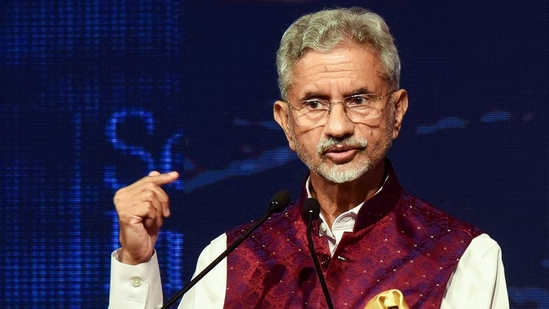India’s Firm Stand: Jaishankar’s ‘Red Lines’ in U.S. Trade Negotiations
- MGMMTeam

- Oct 6, 2025
- 3 min read
As trade discussions between India and the United States intensify, External Affairs Minister S. Jaishankar has made it clear that New Delhi will not compromise on its “red lines.” His message comes amid growing pressure from Washington for greater access to Indian markets, particularly in agriculture and dairy.

Defending Domestic Interests
Speaking at the Kautilya Economic Enclave in New Delhi, Jaishankar emphasized that while India values its strategic partnership with the U.S., any trade understanding must respect its fundamental economic boundaries. “Whatever happens, India and the U.S. will have a trade understanding — but it has to be one where our bottom lines, our red lines, are respected,” he asserted.
At the center of these red lines lies India’s commitment to protecting its farmers. Prime Minister Narendra Modi has repeatedly promised that no trade deal will jeopardize India’s agricultural economy, warning against an influx of cheap American goods that could destabilize local markets.
Jaishankar reiterated that certain aspects of any agreement remain non-negotiable, adding, “In any agreement, there are things you can negotiate and there are things you can’t. We have to find that landing ground.”
Tariff Tensions and ‘Unfair’ Penalties
The ongoing friction between New Delhi and Washington intensified after the U.S. imposed a 25 percent reciprocal tariff on Indian goods — later coupled with an additional 25 percent “penalty” tied to India’s purchase of Russian oil. Jaishankar criticized these measures as “very unfair,” noting that other countries with even stronger trade ties to Moscow have not faced similar punitive actions.
While certain elements of the bilateral relationship continue unaffected, the tariff dispute remains a sticking point. Analysts suggest that the U.S.’s insistence on linking trade penalties to geopolitical choices undermines the trust essential for a balanced partnership.
Washington’s Push for Market Access
Jaishankar’s remarks came just a week after U.S. Commerce Secretary Howard Lutnick urged India to “play ball” with Washington’s expectations. Lutnick argued that if India wishes to expand exports to the U.S., it must reciprocate by opening its domestic markets and cutting Russian oil imports.
Such demands have been met with resistance in New Delhi, where policymakers see them as attempts to dictate India’s sovereign trade and energy decisions. The push for liberalization has also revived debates about the fairness of U.S. trade policies that often benefit American corporations at the expense of developing economies.
Trump’s Mixed Messaging
Adding to the complexity, former President Donald Trump has sent conflicting signals regarding India. While he has described Prime Minister Modi as a “good friend,” he has simultaneously accused India and China of financing Russia’s war in Ukraine and praised Pakistan’s alleged peace efforts.
Observers believe these contradictory statements have fueled further uncertainty, casting doubt on Washington’s consistency in its South Asia policy. India, meanwhile, continues to assert its sovereignty, particularly over ceasefire decisions and foreign partnerships — a stance that may have contributed to U.S. frustration on the trade front.
The Path of Self-Reliance
In response to global volatility, Jaishankar suggested that India’s strength must come from within. “The answer for a more difficult world is not just outside — a large part of that answer is inside,” he remarked, alluding to India’s ongoing push for “Swadeshi” or self-reliance.
This philosophy aligns with Prime Minister Modi’s “Make in India” and “Atmanirbhar Bharat” campaigns, which aim to reduce dependency on foreign markets and foster domestic innovation. As relations with the U.S. oscillate between cooperation and confrontation, these policies serve as India’s strategic buffer against external pressure.
The MGMM Outlook
India’s approach to trade negotiations with the United States reflects a firm commitment to protecting its domestic interests while engaging with global partners. External Affairs Minister S. Jaishankar has emphasized that New Delhi’s “red lines” — particularly the safeguarding of its agricultural economy — cannot be compromised, even amid pressure from Washington for broader market access. Recent U.S. measures, including steep tariffs and penalties tied to India’s energy imports from Russia, have been criticized as unfair, highlighting the asymmetry in how trade rules are applied. India continues to assert that any agreement must respect its sovereignty and economic priorities, underscoring a careful balance between cooperation and self-interest.
The dynamics of the India–U.S. dialogue are further complicated by inconsistent messaging from U.S. leadership and demands that challenge India’s independent policy choices. Jaishankar has underscored the importance of self-reliance, resonating with initiatives like “Make in India” and “Atmanirbhar Bharat,” which aim to strengthen domestic production and innovation. Against a backdrop of geopolitical volatility, these efforts position India to navigate global pressures without yielding its core economic and strategic principles, ensuring that trade engagements remain aligned with long-term national interests.
(Sources: Hindustan Times, NDTV, Times of India)




Comments